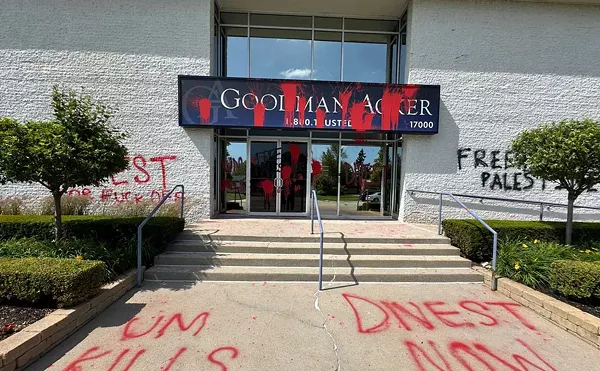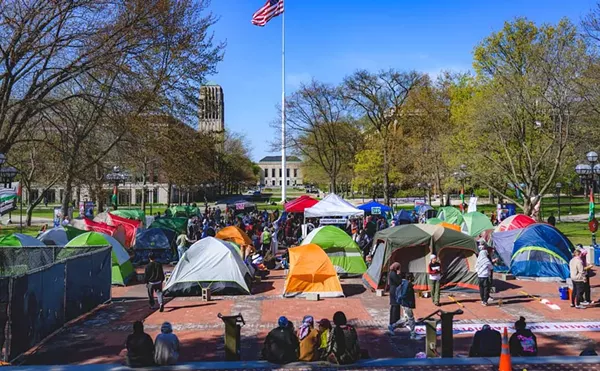
Audio By Carbonatix
[
{
"name": "GPT - Leaderboard - Inline - Content",
"component": "35519556",
"insertPoint": "5th",
"startingPoint": "3",
"requiredCountToDisplay": "3",
"maxInsertions": 100,
"adList": [
{
"adPreset": "LeaderboardInline"
}
]
}
]
When it comes to trying to protect this region's environment and the people who inhabit it, Ferndale resident Ed McArdle has been at it longer than most.
McArdle's environmental activism got a jump-start during the early 1980s, when Ronald Reagan appointed James Watt to be secretary of interior. Watt, who viewed nature as something to be exploited for as much profit as possible, was a guy who never met a strip mine or logging operation he didn't adore.
With more than a quarter century of activism under his belt, Sierra Club volunteer McArdle is a guy whose opinion carries some heft. And these days, one of the issues that most concerns him is DTE Energy's attempt to construct a third nuclear power plant on the shores of Lake Erie near Monroe.
Fermi 1 — which experienced a partial nuclear meltdown in 1966, resulting in a book that bore the chilling title We Almost Lost Detroit and a Gil Scott-Heron song with the same name — was decommissioned in the early 1970s. Its successor, Fermi 2, came online in the late 1980s and is still in operation.
In September, DTE began the process of seeking the Nuclear Regulatory Commission's permission to construct Fermi 3, a proposed 1,500-megawatt nuke plant.
In a recent op-ed piece penned for Downriver's News-Herald, McArdle attempted to rally opposition to the new facility. As we reported last year ("Blast from the past," Aug. 13, 2008), growing concern about climate change has the nuclear industry working hard to promote itself as a green alternative to fossil-fuel-burning power plants.
Don't buy it, McArdle warns.
"It is true that the operation of nuclear reactors is mostly carbon-free, especially when compared to coal plants, but the nuclear fuel cycle has significant impacts on global warming and the environment," he writes. "Nuclear power is not carbon-free when you consider the life cycle of prospecting, mining, milling, enrichment, fabrication and transport."
Beyond that, there's something inherently crazy about an industry that produces deadly waste depicting itself as green.
"The most compelling reason to halt nuclear expansion is the creation of highly radioactive wastes that have to be sequestered for millions of years," McArdle writes. "After 60 years of nuclear power and weapons' production, there still is no final storage solution. The earliest that the federal depository at Yucca Mountain, Nev., is predicted to open is 2017 — or perhaps never because of problems with the site. Creating more nuclear waste does not make sense and I believe there is a moral compunction that we should not be putting generations far into the future in harm's way."
McArdle and other activists fighting to keep the new nuke plant from being built are seeking recruits to join in the cause. Reach him at 313-388-6645 or ecoguy2@netzero.net.
News Hits was edited by Curt Guyette. Contact him at NewsHits@metrotimes.com or




